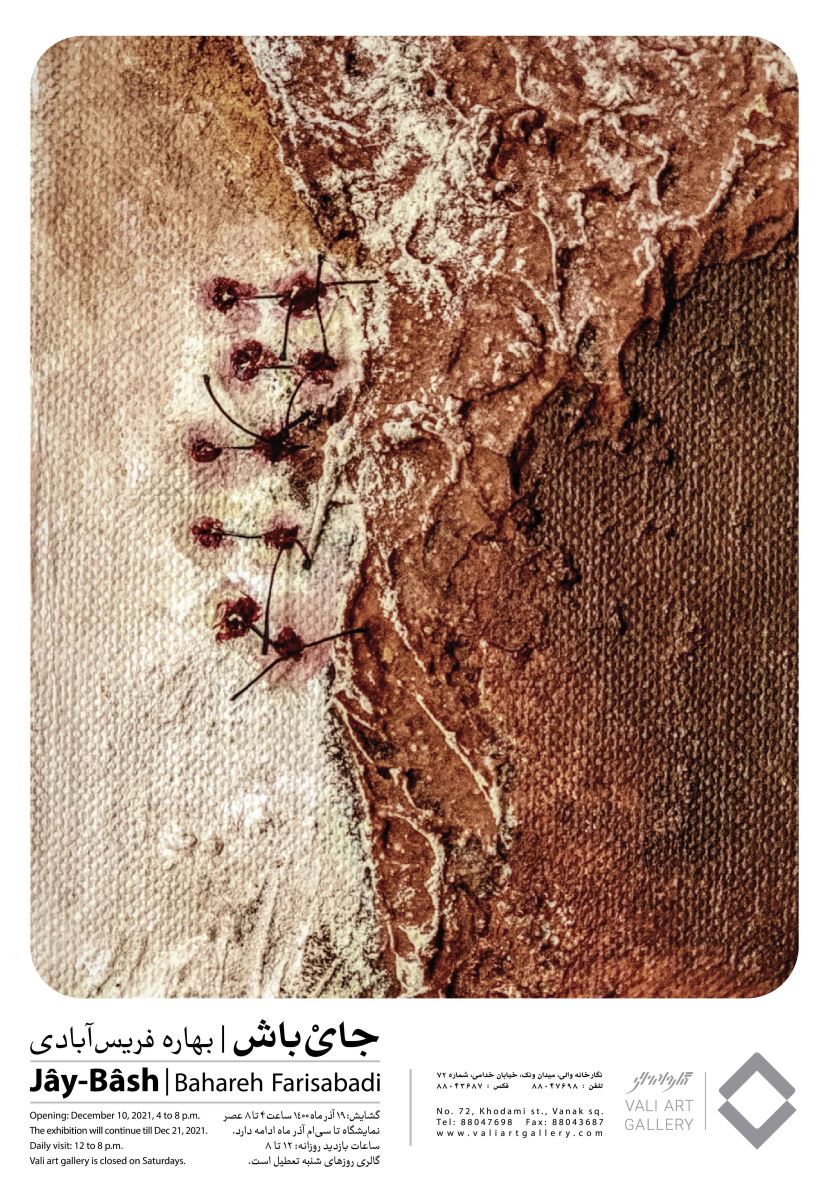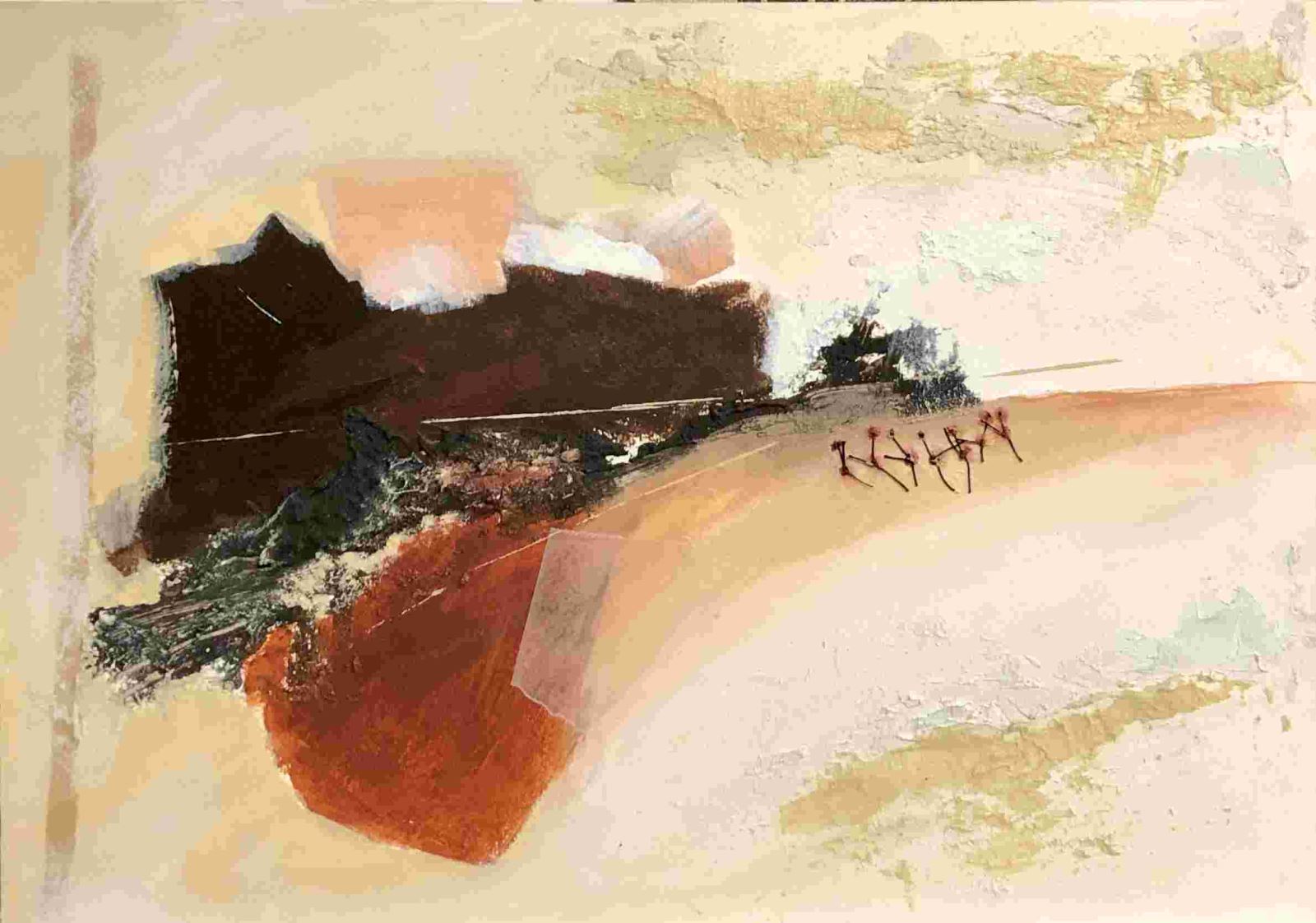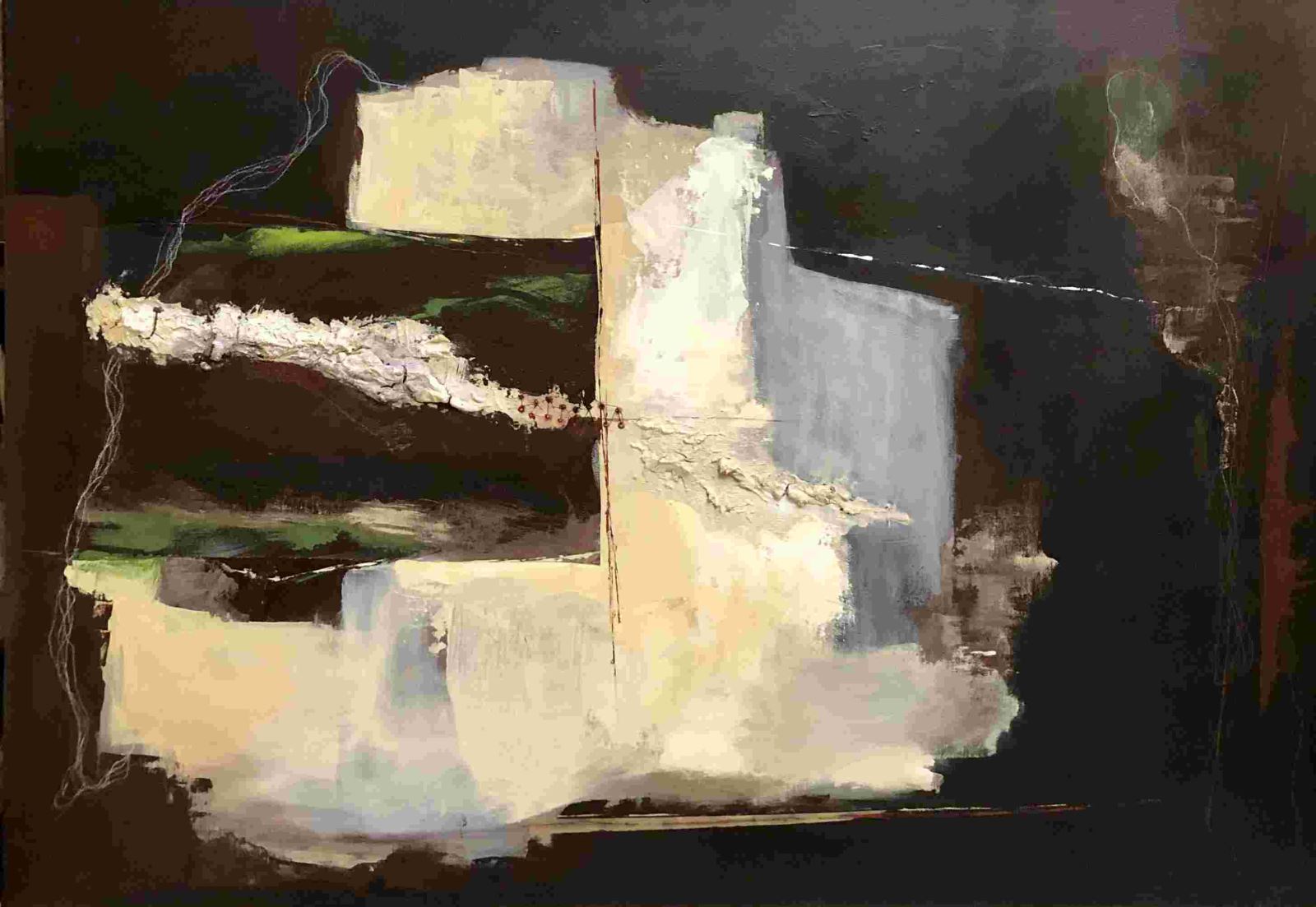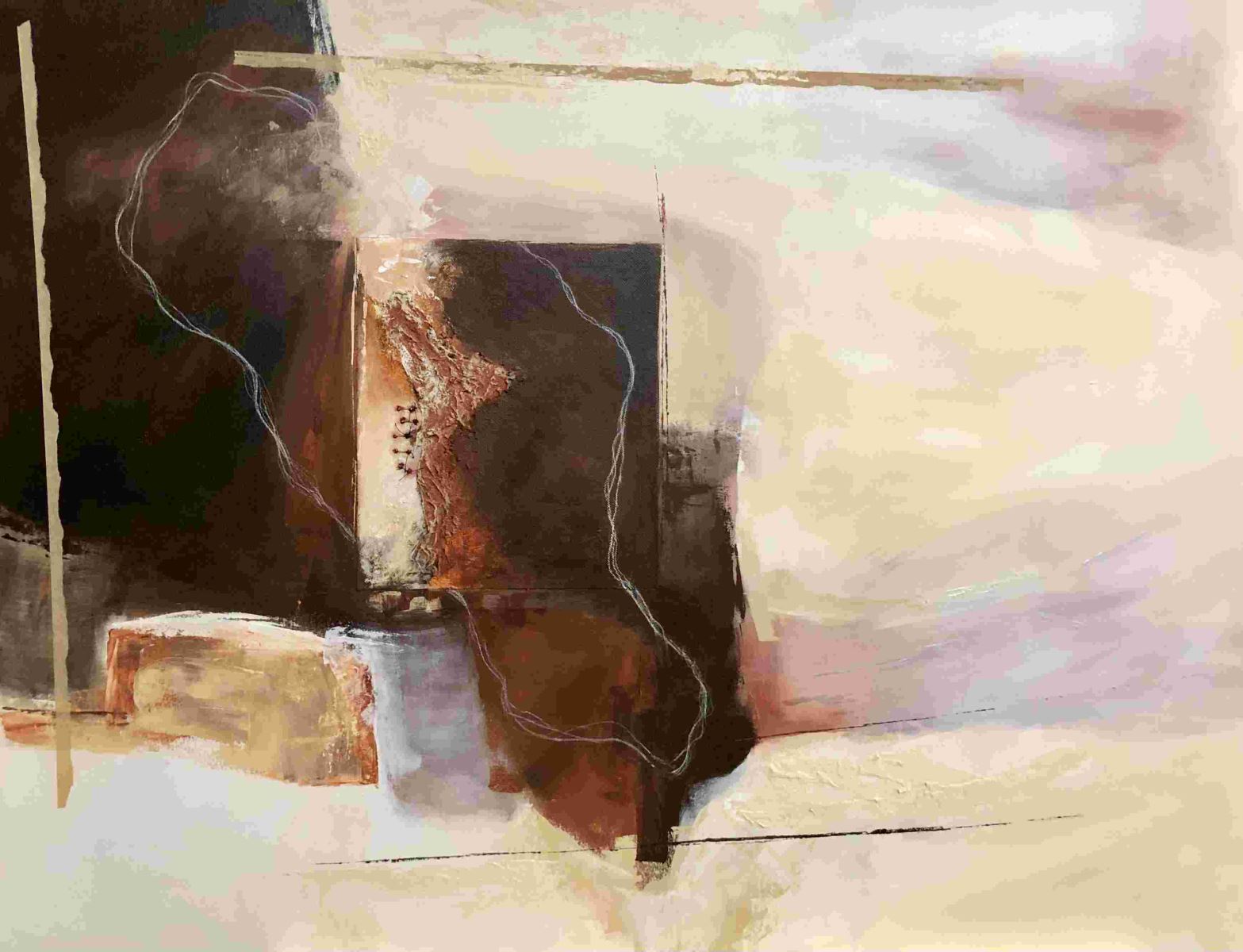Artists participating
Jây-Bâsh
(from homeland with love)
If we assume the arbitrary aspect of geography as "Matter of Fact", then the tacit anguish (melancholy) within the Matter of Fact–as defined by Susan Sontag–emanates from an event which befalls geography. Since in the absence of events, sans the intervention and intrusion of history–this fragmentary and annihilated reality, the geographical denotations of such terms as soil, waters, crevice or summit are nothing but mere scenaries.
Jây-Bâsh, abode or land; this enclosed concorded formation or in a more accurate sense, this material which occupies a considerable capacity of our memory, is an entity comprised of incidents. It is of an eroding or metamorphosing shape of a body which does not intend to assert every single event it has endured in its limbs, forms and shapes based on its narratives. It also chooses not to portray its tales in absolute abstraction. Tales which lack any past or future. For if a sign of an incident is seen in an image, there will be no grounds for absolute abstraction then. What remains is due to union.
Referring to the past without resort or inclination to nostalgia, can elicit much more truths from the cubicles of our mind; the essence of wounds that the hopes of their healings can be thought of as soon as they are manifested.
In my opinion, both My personal reminiscences and Our collective memories of this "fatigued physique" ultimately add up to one point: Wound.
And there are always some fragments of the past and possibilities of the future manifested in a wound. Fragments of what the body has gone through and a "perchance" which bears the hope for healing or the penitence in extremis. All we need to do is to locate the exact spot of the wound and estimate how lethal it can be.
Bahareh Farisabadi
2021



